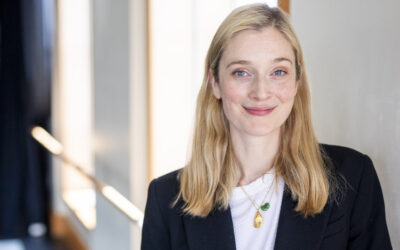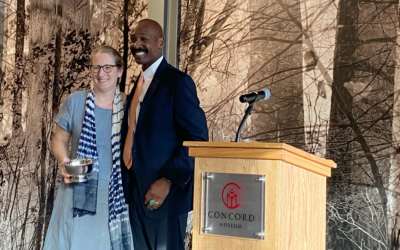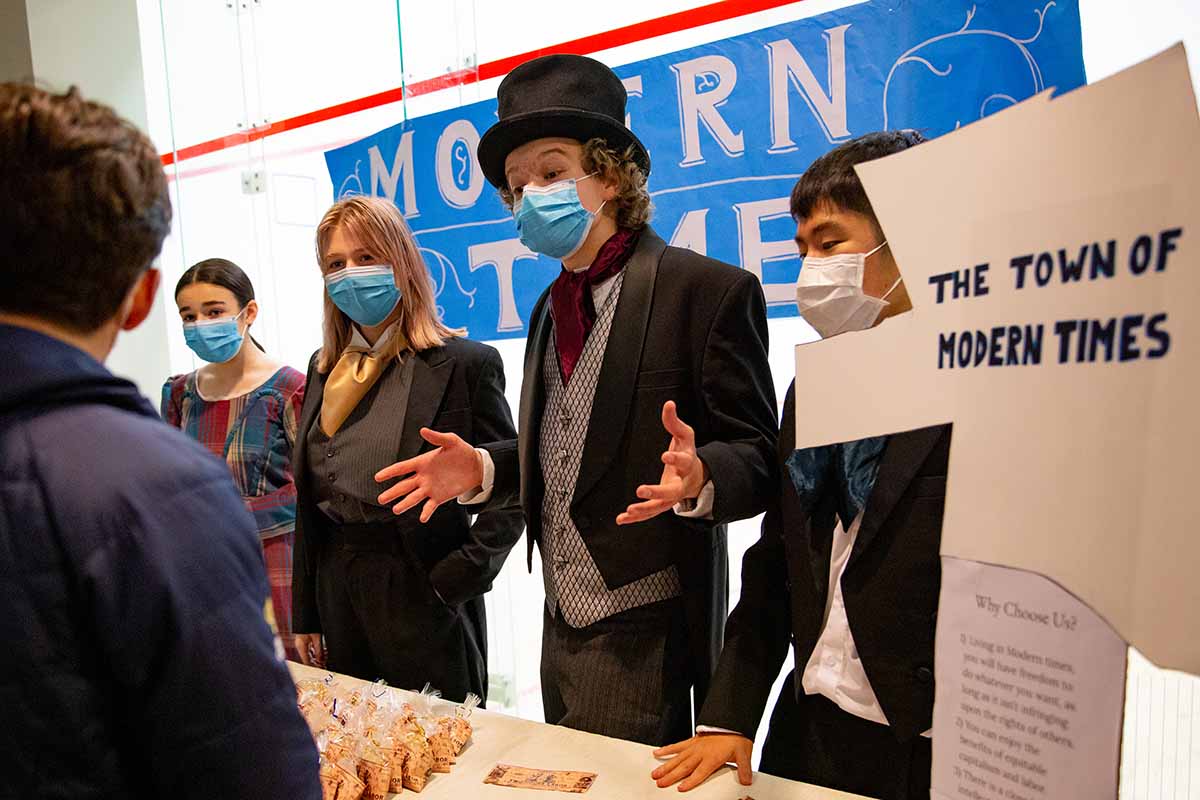
On the evening of December 2, students in Kim Frederick’s American Utopias history course transformed the SHAC atrium into an expo for 19th-century utopian communities. As members of the CA community meandered through the various booths, they received food and gifts— including popcorn kernels, notebooks, and muffin recipes—as “recruiters” tried to sway guests to join their utopia. Students also wore 19th-century clothing during the event, modeling outfits that members of their utopian community would have worn.
Earlier this semester, Frederick assigned each student in the course to one of 11 utopian communities. The groups represented included Amana, Brook Farm, Fruitlands, Icaria, Modern Times, Latter-Day Saints, New Harmony, Oneida, the Shakers, Walden, and Zoar. These communities emerged in the United States in the 1830s and 1840s, though Frederick began the class by discussing the American revolution and the project of the American Republic. Frederick explains that, in large part, “the utopian movement was a reaction to the disappointment at what the Republic has become.” Utopian thinkers, she says, had a vision of “the perfectibility of human society.”
Frederick tasked each group of students with running a “recruitment booth” for their assigned utopian community. Upon entering the Expo, guests chose a card with a description of a 19th-century person and that individual’s life circumstances and beliefs. With their chosen persona in mind, guests engaged with students in character. If convinced to join, guests gave their character card to their chosen utopian community.
There was a competitive aspect to the event as well: Whichever utopia received the most cards “won” the Expo. Frederick says that this added an “element of immediacy to student’s interactions with guests.” Instead of just speaking about the utopia, students had to create compelling pitches for joining the community.
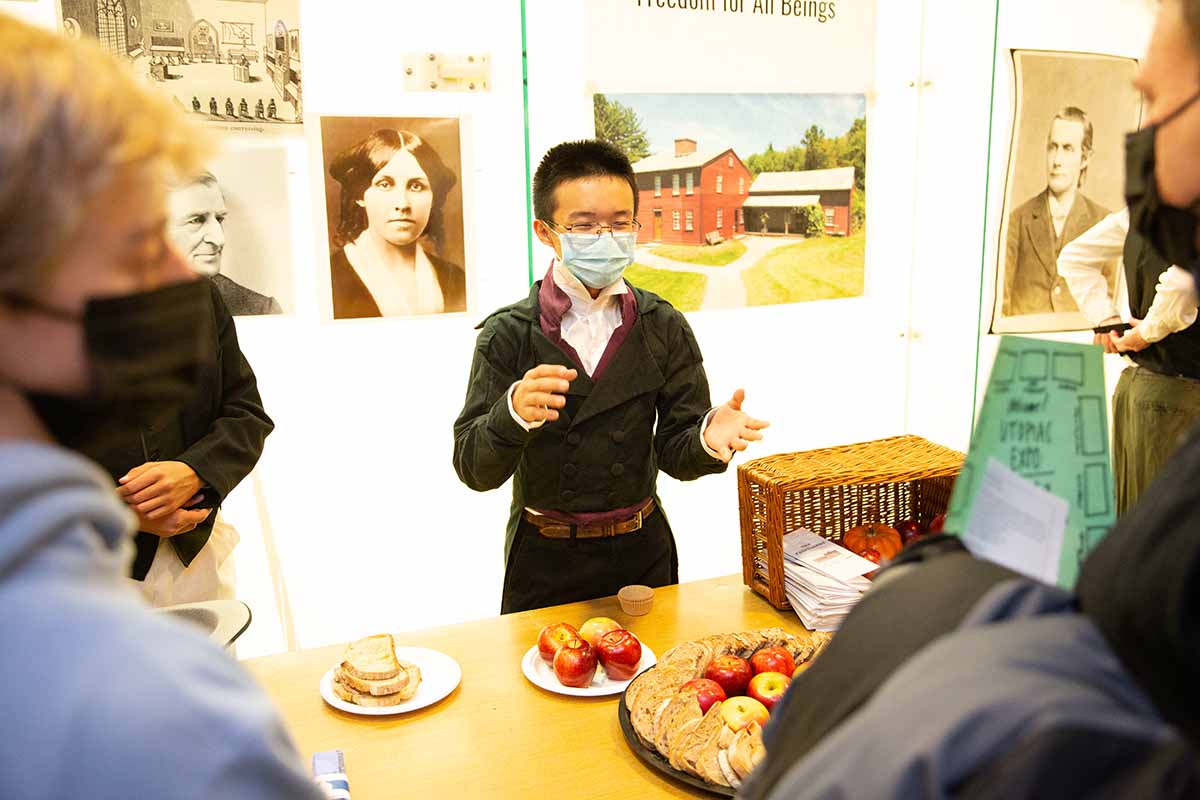
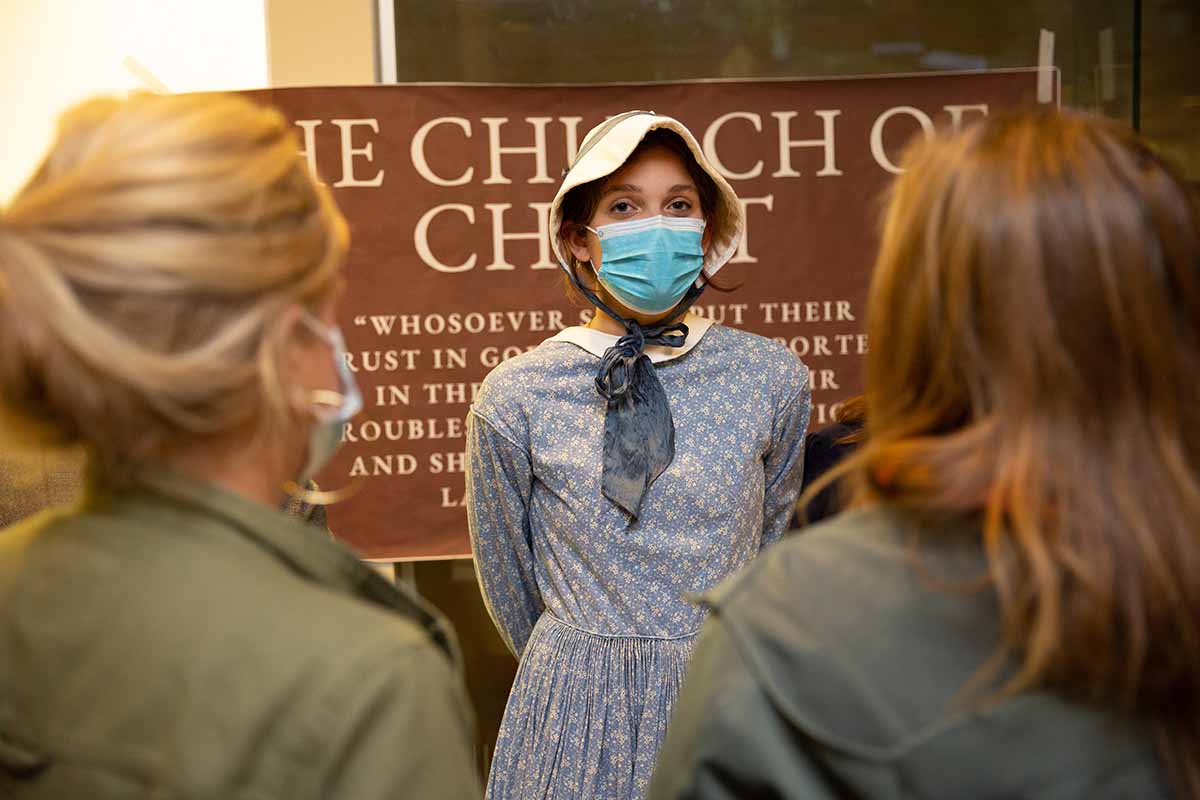
The unique nature of this assignment allowed students to really get into the mind of these utopianists. Frederick says that students confronted lofty questions when preparing for the Expo: “What would it take for you, with an established family and an established community, to say to yourself: I’m going to join this totally new place?” she says. “I’m going to upend my economic and social and family life, because I think that we can make the world a better place.”
Students had to reckon with the totality of these utopian groups. They considered these communities’ ideas and thoughts, physical and social organization, politics, economic basis, and relationship to the environment, food, and the material goods they value. Graylyn Rhee ’24, a 10th grade student who represented the group Icaria, says “The Expo required me and my classmates to both recall the information to answer [guests’] questions and also to use our knowledge of our utopias to put ourselves in the shoes of the people whom we were representing.”
Graylyn’s favorite part of preparing for the Expo was diving into the research on Icaria. “I enjoyed scouring the internet and old French primary sources for anything that I could find about my utopia,” she says. This depth of research was evident in her group’s recruitment table: Along with a brochure and map of Icaria, the group handed out mini 3D-printed replicas of wooden shoes worn by Icarians.
The Utopias Expo was a great success with many CA community members—including students, parents, and faculty and staff members—showing up to participate. Guests left with delicious treats, fun tokens, and new knowledge of 19th-century utopian communities thanks to the thorough research and exemplary presentation skills of these history students.
